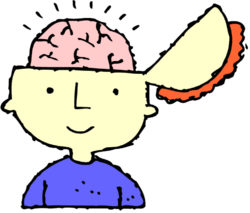Source of article The Jury Room - Keene Trial Consulting.
 After we published that “molecular genetics overlap” post showing curiosity is found in smart people—one of our readers asked exactly how you “see” smart during voir dire. The question was posed on Twitter but the answer is not exactly expressed in 140 characters—so we’re doing it here. Among other things, we made these comments in that post:
After we published that “molecular genetics overlap” post showing curiosity is found in smart people—one of our readers asked exactly how you “see” smart during voir dire. The question was posed on Twitter but the answer is not exactly expressed in 140 characters—so we’re doing it here. Among other things, we made these comments in that post:
All we need to do is look to see who is smart and we will then know we can select curious jurors (while considering whether our client’s case benefits from higher levels of intelligence and curiosity).
And, as we often say to our clients—especially in rural areas like the far east and west ends of Texas, “smart does not necessarily mean highly educated”. It is typically, however, a lot easier to see or hear “smart” than it is to see or hear “curious” (or open to experiences). So it can be a voir dire short cut (which can qualify as a secret weapon).
So. Here are some of the signs that a member of the venire might be smart and curious, regardless of their level of formal education:
Do they have less formal education than expected for the job they hold?
Do they have a creative occupation that requires quick associations or problem-solving?
Are they a researcher (of any sort) or scientist?
Do they write professionally (books, magazines, blogs, et cetera, in both fiction and nonfiction)?
Are they a long time manager in a fast paced workplace setting?
Do they work in a fast-changing field?
Are they a technology worker familiar with NDAs and confidentiality?
Do they have hobbies that involve curiosity, problem-solving, or thinking?
Do they think of themselves as questioning authority, or going along with the group consensus?
Does the juror have a history of being self-employed and an above average income?
It is always important to consider whether any particular trait or attitude reflects more or less receptivity to your trial story. In our experience, most attitudes and traits don’t make much difference, but the few that do can have a profound effect on their view of evidence and argument, and their predisposition toward one verdict or another.
There are certainly other characteristics we look for to “see” or “hear” smart, but this is a brief list to get you started. Each case will result in variations on what we look for in a “smart” juror for that specific case (just as there are many kinds of intelligence).
